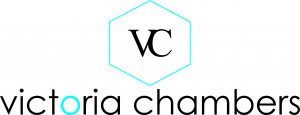
Shell has made its first power sector acquisition in Africa with the purchase of a Nigerian renewable energy provider, as the oil major seeks to build out a green energy business that will eventually reduce its dependence on fossil fuels.
Daystar Power, which operates in Nigeria, Ghana and three other countries across west Africa, provides solar power and battery solutions to business and industry across the region, including Nigerian Bottling Co, makers of Coca-Cola in the country.
Thomas Brostrøm, Shell’s executive vice-president for renewable generation, said the acquisition of Daystar for an undisclosed sum was “a fundamental step for Shell in growing our presence in emerging power markets”.
The deal follows Shell’s acquisitions of renewable power businesses in other parts of the world in the past year, including the Indian group Sprng Energy in April for $1.55bn and US-based Savion in December 2021.
The Daystar acquisition is said to be significantly smaller than either of those deals. The Nigerian company has an installed generating capacity of about 32 megawatts, compared with the 2 gigawatts operated by Sprng in India. Daystar has raised $92mn in funding since its inception in 2017, including a $20mn facility from the Washington-based International Finance Corp last year.
Brostrøm said Daystar represented Shell’s “first steps into the renewable power space” in Africa.
Daystar chief executive Jasper Graf von Hardenberg said demand for his company’s services had grown and that meeting it would have required raising another round of capital. Instead, he said, the group continued a conversation with Shell that began in 2019 and led to discussion of a takeover last year.
“It was important to find someone with a strong balance sheet to back us,” von Hardenberg told the Financial Times. “We are happy because Shell has a lot of experience in energy and they have a long history in Africa and will be the right owners to take this business forward.”
Shell has a long and complicated record in Nigeria. It was the first company to discover oil in the country in 1956 and has pioneered the development of the sector in the decades since. But in recent years, it has struggled to manage criminality and environmental issues at several of its projects, provoking criticism from civil society groups.
Last year, it announced plans to retain its offshore operations but divest its troubled onshore assets, in a process that has become mired in court cases over responsibility for past environmental damage.
In an interview with the FT in July, outgoing chief executive Ben van Beurden said Shell would continue to divest oil assets and use the proceeds to fund further energy transition deals, with a focus on acquiring companies with an existing book of renewable customers.
Daystar’s senior leadership, including von Hardenberg and co-founder Christian Wessels, will continue to lead the 140-strong team following the takeover. Hardenberg aims to expand across east and southern Africa and achieve 400MW of installed capacity by 2025.
Renewable energy, particularly solar power, is seen as a potentially transformative technology in Africa, where about 600mn people, or 43 per cent of the population, lack access to electricity.
Many businesses in Nigeria and elsewhere in the region rely on expensive diesel generators to power their factories and offices when unreliable electricity grids fail. According to data from Nigeria’s statistics agency, the cost of diesel in Nigeria soared more than 200 per cent in August compared with the corresponding month last year.
